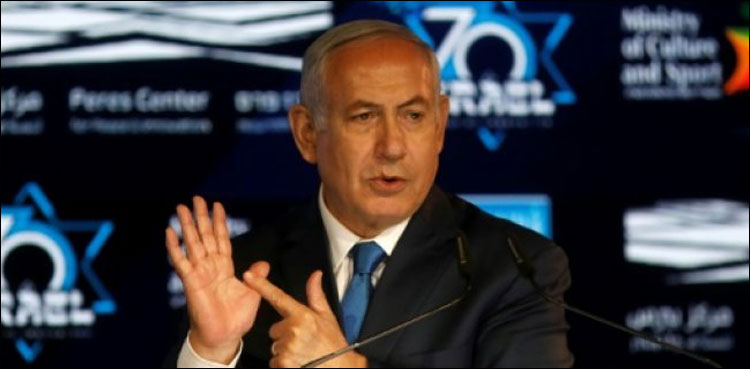
[ad_1]
Israeli PM Benjamin Netanyahu has vowed a response by saying Iran has “made a big mistake tonight, and will pay for it.”
Iran launched around 180 missiles at Israel on Tuesday in response to the killings Hamas and Hezbollah leaders, prompting alarm across the region and vows of retaliation.
Most of the missiles were intercepted by Israeli air defences or by allied air forces before they reached Israel, as sirens sounded nationwide.
The Israeli military announced after about an hour that the attack was over with a “large number” of missiles intercepted.
Israeli medics reported two people were lightly injured by shrapnel, while in the occupied West Bank, a Palestinian was killed in Jericho “when pieces of a rocket fell from the sky and hit him”, the city’s governor Hussein Hamayel told AFP.
It was Iran’s second direct attack on Israel after a missile and drone attack in April in response to a deadly Israeli air strike on the Iranian consulate in Damascus.
The United States said Tuesday’s attack “appears to have been defeated and ineffective”, with National Security Advisor Jake Sullivan warning that Tehran could expect “severe consequences”.
Iran’s Revolutionary Guards said they had targeted “three military bases” around Israel’s commercial hub Tel Aviv.
They said the attack was in response to Israel’s killing of Hezbollah leader Hassan Nasrallah last week as well as the death of Hamas leader Ismail Haniyeh in a Tehran bombing widely blamed on Israel.
UN chief Antonio Guterres condemned the “broadening conflict in the Middle East”, saying in a statement: “This must stop. We absolutely need a ceasefire.”
Israeli airspace was closed for several hours with all flights diverted, a spokesman for the airport authority said.
Iraq, Lebanon and Jordan, which lie between Iran and Israel, closed their airspace too.
Jordan said its air defences responded to missiles and drones.
Read more: Iran launches missiles at Israel, IDF says
US President Joe Biden ordered the military to “aid Israel’s defence” and shoot down Iranian missiles, the White House said.
While Iran-backed groups across the region had already been drawn into the Gaza war, sparked by Palestinian group Hamas’s October 7 attack on Israel, Tehran had largely refrained from direct attacks on its regional foe.
‘Direct conflict’
Israeli military spokesman Daniel Hagari said the latest Iranian “attack will have consequences. We have plans, and we will operate at the place and time we decide”.
Iran’s Revolutionary Guards said that “If the Zionist regime reacts to Iranian operations, it will face crushing attacks”, according to a statement carried by the Fars news agency.
President Masoud Pezeshkian said Iran had exercised its “legitimate rights” and dealt “a decisive response… to the Zionist regime’s aggression”.
US Secretary of State Antony Blinken said the Iranian attack was “unacceptable” and called on the whole world to condemn it.
French Prime Minister Michel Barnier said he was concerned about “a direct conflict that seems to be underway between Iran and Israel”.
Germany’s Foreign Minister Annalena Baerbock said on social media platform X that the attack was “leading the region further towards the abyss”.
Hamas praised the Iranian attack, saying it was “in revenge for the blood of our heroic martyrs”.
The escalation came after the Israeli military said early Tuesday that troops had started “targeted ground raids” in south Lebanon, across Israel’s northern border.
The Israeli ground offensive came despite growing calls for de-escalation after a week of air strikes that killed hundreds in Lebanon, including Hassan Nasrallah, the powerful leader of Hezbollah.
[ad_2]
Source link





